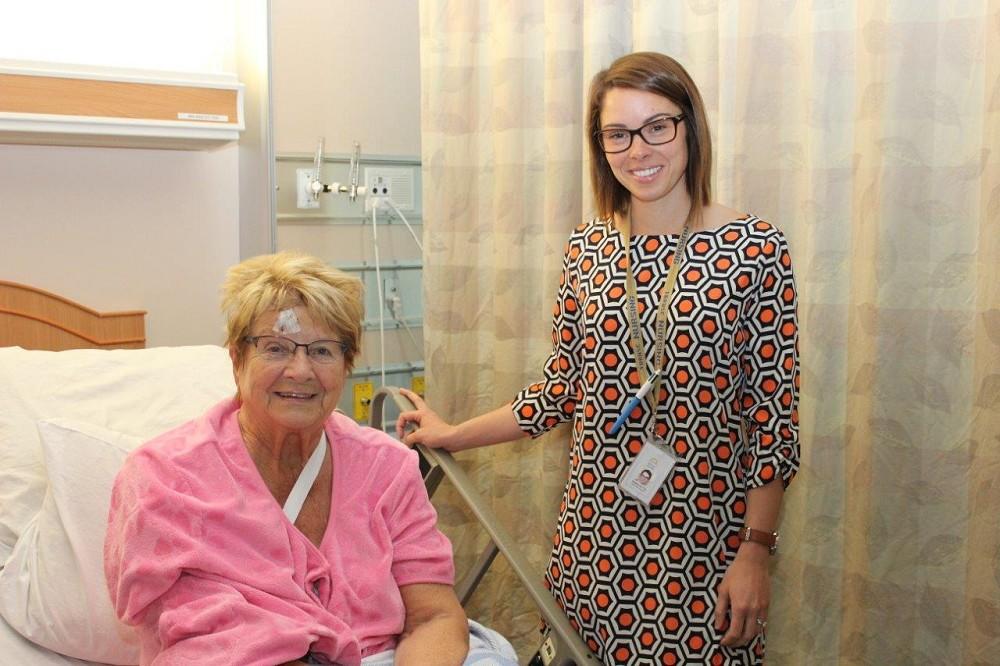Delirium Screening: A Step Towards Optimizing Senior Care
by Maryanne Matthews
 Andrea Raynak, CNS Medicine, Interprofessional Education, TBRHSC, screens a senior patient for delirium using the Confusion Assessment Method (CAM). By increasing the level of attention given to senior patients, staff can hopefully prevent delirium, or at least identify it early, resulting in an enhanced level of care from the beginning.
Andrea Raynak, CNS Medicine, Interprofessional Education, TBRHSC, screens a senior patient for delirium using the Confusion Assessment Method (CAM). By increasing the level of attention given to senior patients, staff can hopefully prevent delirium, or at least identify it early, resulting in an enhanced level of care from the beginning.Service demand is growing for senior patients. Baby boomers are quickly approaching an age where their demands on the health system will increase, affecting hospitals across Ontario.
At Thunder Bay Regional Health Sciences Centre, we recognize that the needs of senior patients are increasing, and also unique. To help address some of the special needs of senior patients, we’ve developed and successfully implemented a pilot project for delirium screening.
“Delirium is frequently overlooked or under-diagnosed due to multiple reasons, including limited staff knowledge about the detection, condition and prevention,” said Andrea Raynak, CNS Medicine, Interprofessional Education. “The Delirium Screening pilot project was very successful in implementing a new screening procedure that improves the level of care for our senior patients, and also in educating the staff on the preventative methods for delirium.”
The pilot project began with mandatory, interactive staff education which included overall information on delirium, preventative strategies and how to screen for delirium using the Confusion Assessment Method (CAM). This screening tool improves the identification and recognition of delirium. Nurses used the CAM screening tool within 48 hours of admission, and then daily on all patients aged 65 and over. If screening results are positive for delirium, the nurse would notify the most responsible physician.
“By increasing the level of attention given to senior patients, we can hopefully prevent delirium, or at least identify it early, resulting in an enhanced level of care from the beginning. This not only decreases staff workload, but creates a more optimal experience for senior patients and their families while decreasing staff work load,” explains Raynak.
The Delirium Screening pilot project was so successful that we continue to mandate daily screening of senior patients on the pilot unit. We believe the program has led to better patient outcomes by creating a safer environment, decreasing the length of stay and alternative long term care requirements for senior patients. The second phase of the project will see a delirium management procedure put into place to standardize delirium care and management for the senior population. It will also help to more accurately measure delirium rates and is expected to roll out by the end of Spring 2016.
“As part of our Strategic Plan 2020, we are committed to providing an environment that minimizes the vulnerability of senior patients and promotes safety, comfort, independence, and functional well-being,” says Aaron Skillen, Program Director, Chronic Disease Prevention & Management and Medicine Services. “The delirium screening project is a great step towards delivering an optimal experience for seniors that is in line with Ontario’s Senior Friendly Hospital Framework.”